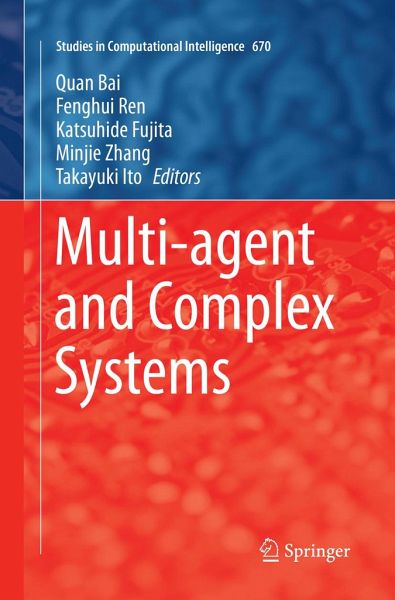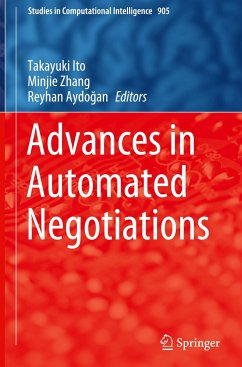
Multi-agent and Complex Systems
Versandkostenfrei!
Versandfertig in 6-10 Tagen
113,99 €
inkl. MwSt.

PAYBACK Punkte
57 °P sammeln!
This book provides a description of advanced multi-agent and artificial intelligence technologies for the modeling and simulation of complex systems, as well as an overview of the latest scientific efforts in this field. A complex system features a large number of interacting components, whose aggregate activities are nonlinear and self-organized. A multi-agent system is a group or society of agents which interact with others cooperatively and/or competitively in order to reach their individual or common goals. Multi-agent systems are suitable for modeling and simulation of complex systems, wh...
This book provides a description of advanced multi-agent and artificial intelligence technologies for the modeling and simulation of complex systems, as well as an overview of the latest scientific efforts in this field. A complex system features a large number of interacting components, whose aggregate activities are nonlinear and self-organized. A multi-agent system is a group or society of agents which interact with others cooperatively and/or competitively in order to reach their individual or common goals. Multi-agent systems are suitable for modeling and simulation of complex systems, which is difficult to accomplish using traditional computational approaches.














